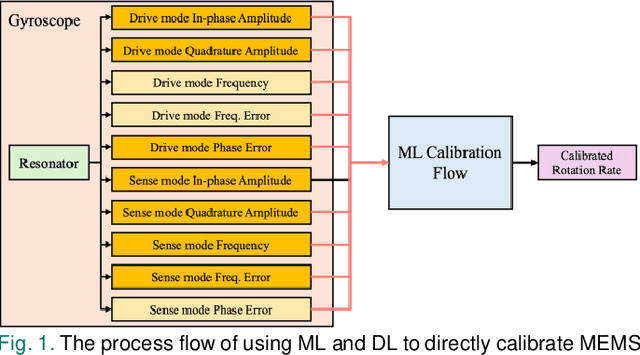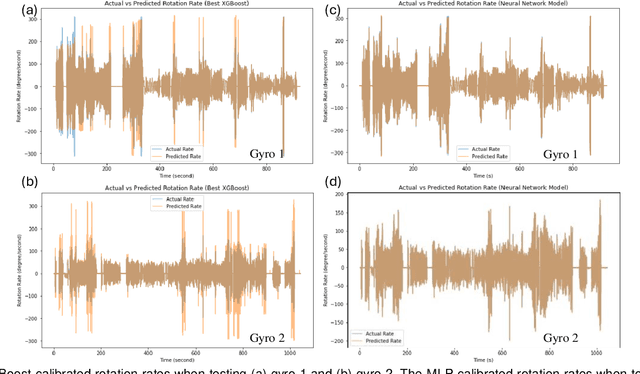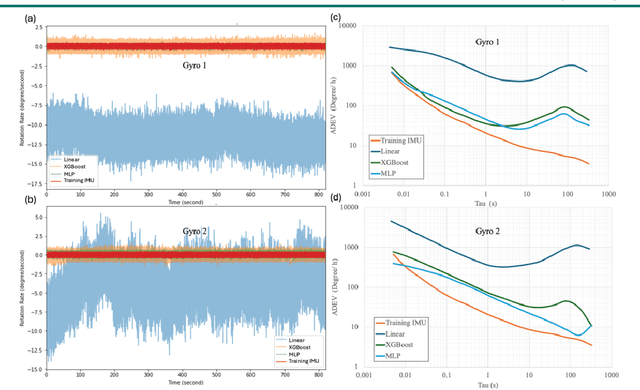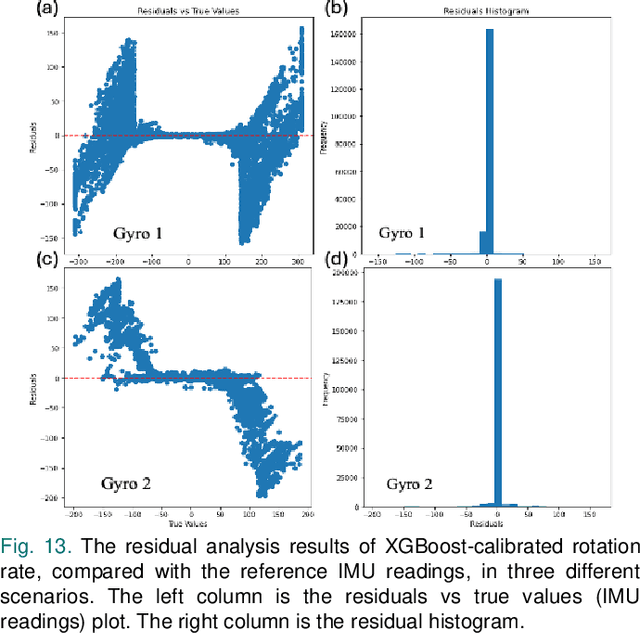MEMS Gyroscope Multi-Feature Calibration Using Machine Learning Technique
Paper and Code
Oct 10, 2024



Gyroscopes are crucial for accurate angular velocity measurements in navigation, stabilization, and control systems. MEMS gyroscopes offer advantages like compact size and low cost but suffer from errors and inaccuracies that are complex and time varying. This study leverages machine learning (ML) and uses multiple signals of the MEMS resonator gyroscope to improve its calibration. XGBoost, known for its high predictive accuracy and ability to handle complex, non-linear relationships, and MLP, recognized for its capability to model intricate patterns through multiple layers and hidden dimensions, are employed to enhance the calibration process. Our findings show that both XGBoost and MLP models significantly reduce noise and enhance accuracy and stability, outperforming the traditional calibration techniques. Despite higher computational costs, DL models are ideal for high-stakes applications, while ML models are efficient for consumer electronics and environmental monitoring. Both ML and DL models demonstrate the potential of advanced calibration techniques in enhancing MEMS gyroscope performance and calibration efficiency.
 Add to Chrome
Add to Chrome Add to Firefox
Add to Firefox Add to Edge
Add to Edge